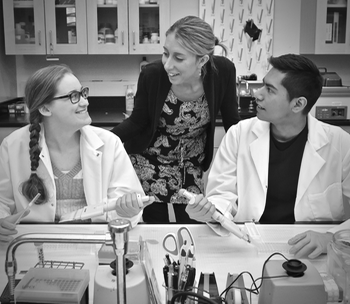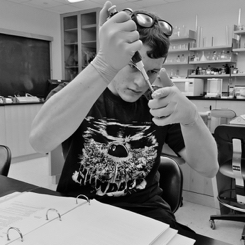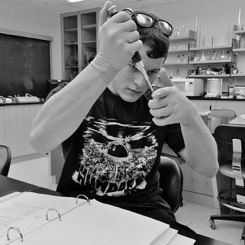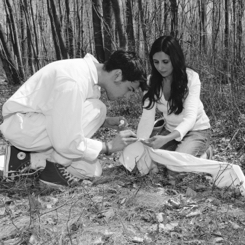Dr. Michelle Monette
Associate Professor 
Science Building 141
monettem@wcsu.edu
203-837-9894
BIOGRAPHY
Dr. Monette holds a BA in Biology from Boston University, and a PhD in Organismic and Evolutionary Biology from the University of Massachusetts, Amherst. Dr. Monette’s doctoral research focused on understanding mechanisms of salt and water balance in fish, and in particular, the physiological transformation enabling the migration of juvenile Atlantic salmon from freshwater to seawater. After completing her PhD, Dr. Monette became a postdoctoral fellow in the Department of Cellular and Molecular Physiology at Yale School of Medicine. As a postdoctoral fellow, Dr. Monette studied the molecular physiology of the Na-K-Cl cotransporter, an ion transport protein with a critical role in salt and water reabsorption in the human kidney, and the target of widely prescribed drugs for the treatment of hypertension. Dr. Monette is currently an Assistant Professor in the Department of Biological and Environmental Sciences at Western Connecticut State University where she teaches courses in Animal and Human Physiology.
RESEARCH INTERESTS
My research seeks to understand how animals regulate physiological function in order to acclimate to changes in their environment. More specifically, my research focuses on understanding the physiological mechanisms of internal salt balance in vertebrates (from fish to humans). To do this, I use a multi-level approach, investigating questions at the molecular, organismal, and population levels. For example, I am interested in ion (or salt) transport proteins, how these proteins function in an organism, and how evolution may have shaped the characteristics of these proteins over time. The importance of my research is two-fold: First, my investigations address fundamental questions relevant to highly conserved mechanisms of salt balance in vertebrates and the understanding of these processes in comparative systems may aid in the treatment of human diseases. Second, determining how natural and human-driven perturbations in our environment affect physiological function of aquatic vertebrates is critical to the proper management/conservation of endangered or economically important species. I currently have ongoing research projects working with Atlantic salmon (Salmo salar), Atlantic killifish (Fundulus heteroclitus) and Threespine stickleback (Gasterosteus aculeatus).
SURF PRIMARY SETTING
Laboratory
SKILLS TO BE ACQUIRED DURING FELLOWSHIP
The SURF fellow will learn the following skills:
- Dissection/handling of fish tissue
- SDS-PAGE gel electrophoresis and Western Immunoblotting
- DNA/RNA extraction from fish tissue
- PCR Primer design
- Real-time (or quantitative) PCR
- Transcriptomics
- Sequencing analysis
- Statistical data analysis
SKILLS REQUIRED TO BE ELIGIBLE FOR A FELLOWSHIP IN THIS LAB
- Excellent written and oral communication skills
- Good organization skills
- Attention to detail
- Good hand (dexterity) for pipetting
FELLOWSHIP DATES
Contact faculty member for availability.
| Former SURF Fellows |
Faculty Mentors |
|||
|
|
|
|
 |
|





